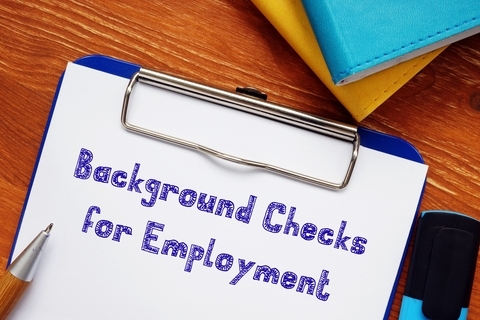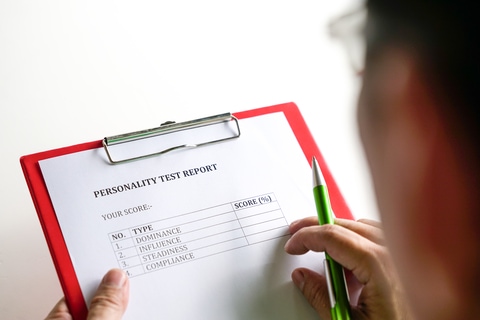In Japan, background checks are allowed under specific circumstances and are not entirely prohibited. This article will clarify the distinctions between global standards, Japan’s unique cultural and legal regulations, the prerequisites for conducting a background check, and pertinent laws and regulations.
Global Background Check Items
In the context of applicant screening, various methods are employed to gather information globally, including but not limited to the following:
- Education and past employment records
- Fingerprinting
- Criminal records
- Handwriting analysis
- Credit/financial checks
- Union membership verification
- Health checks/medical screening
- Assessment of political views
- Social media and Internet searches
- Drug and alcohol testing
Permissible Checks in Japan
In Japan, the above-mentioned check items, which are conducted based on global standards, are generally feasible under certain conditions. However, there are many items that are practically close to impossible due to excessively high hurdles to meet the conditions, such as proof of special reasons or complicated verification procedures. This is a common trend in Asian countries, and it is attributed to the delayed recognition of the necessity of background checks and the dissemination of legal systems.
Typical Checks in Japan
Commonly conducted background checks in Japan typically involve verifying education and past employment records and reviewing publicly available information on social media platforms or through internet searches.
Personal Information Protection Act
It is important to note that all background checks in Japan must adhere to personal data protection and privacy regulations. Information Handlers, including employers, must disclose the Purpose of Use for the collected personal information in advance or promptly after its collection. Additionally, Information Handlers must safeguard and uphold the confidentiality and integrity of the personal data they collect and utilize.
Consent of Data Collection
Under the Japanese constitution, individuals are generally entitled to a Right to Privacy. Therefore, gathering and handling information that falls under the stated categories generally necessitates the consent of the individual to respect their Right to Privacy. However, there may be circumstances where collecting or processing such information without consent is permissible, given a reasonable justification and the individual’s agreement.
Sensitive Information
Among personal information, there is “personal information requiring special consideration.”
Social Discrimination-related Considerations
Additionally, various administrative guidelines specifically limit an employer’s right to obtain certain information about job applicants, including:
- Race, ethnicity, social status, family origin (Monchi), legal domicile (Honseki), place of birth, or other information that could lead to social discrimination.
- Political opinions or religious beliefs.
- Membership in labor unions.
Criminal Records
It is understood that collecting and using criminal records, fingerprinting, and drug and alcohol testing may lead to social discrimination; therefore, their acquisition and use are restricted. However, there may be certain exceptional rules that apply to specific positions.
Health Checks/Medical Screening
Administrative guidelines prohibit employers from acquiring information regarding an employee’s HIV/AIDS, Hepatitis B, or other non-easily transmissible diseases and inherited conditions such as color blindness. Such health-related information may only be collected if it is essential for determining the individual’s ability to perform the job. If an employer obtains health-related information from a third party, they must obtain the applicant’s/employee’s consent and explain the necessity for acquiring such information.
Credit/Financial Checks
Information about an applicant’s credit/financial status can be considered sensitive. As a general principle, collecting or processing information about credit/financial status, including through background checks, is not permissible unless there is a reasonable justification for doing so and the individual consents to such collection and processing.
Entitlement to Work (Working Visa)
Employers may face criminal penalties, including fines or imprisonment if their employees do not possess the appropriate work permits. Consequently, an employer may request copies of residence cards or other documents as evidence of valid work permits.
Timing of Background Checks on Applicants
Background checks are typically conducted in the decision-making process regarding employment offers. Consequently, as a general rule, conducting background checks after the decision to offer employment is optional, as they are no longer deemed necessary.
Background Checks During Employment
Personal information obtained from permissible background checks, such as educational records, may be collected at any time. However, collecting sensitive information, such as criminal records, alcohol and drug testing, and medical screening, should only occur when there is a justifiable reason for collection and the individual consents. Otherwise, collecting such information would violate the individual’s Right to Privacy.
Outsourcing Background Checks
Background checks involving generally permissible personal information, such as education, work history, and social media and internet searches, may be outsourced to third-party service providers under appropriate outsourcing agreements. However, outsourcing background checks involving sensitive information is generally prohibited.
When outsourcing the collection or processing of personal information, the employer is responsible for supervising the handling of such information by the service provider. Administrative guidelines recommend that the employer:
– Ensure the service provider has sufficient security measures to protect the information (e.g., privacy policy, internal rules for information protection, employee training).
– Include provisions regarding properly handling personal information in the outsourcing agreement.
Position-Based Checks
Certain positions may warrant specific background checks. For instance, if an employer intends to hire a new staff member for the accounting or security department, information regarding the individual’s credit/financial status may be collected.
Limitations on Result Usage
Employers are prohibited from using or processing personal information about applicants or employees for purposes beyond the defined Purpose of Use specified at the time of collection. Therefore, if personal data obtained through a background check was intended solely for assessing a candidate’s suitability for a job, it must be strictly limited to that purpose. Employers must obtain consent from applicants or employees if they need to use or process personal information for purposes outside the originally defined Purpose of Use. Additionally, employers are generally prohibited from discriminating against job applicants based on sex or age.
Data Processing
Regarding personal information collected from background checks, employers are obligated to:
- Disclose the purpose for which the information is collected.
- Use the information only for the stated purpose unless the individual consents to alternative uses.
- Correct or delete inaccurate information upon request.
- Delete the information once the purpose for its collection has been fulfilled.
- Implement appropriate security measures to safeguard the information.
- Oversee all employees and service providers handling the information.
Sanctions/Enforcement
Restrictions and regulations governing background checks are enforced through various laws and regulations, including:
- The Personal Information Protection Act (Act No. 57 of 2003, as amended) and its Ancillary Guidelines, such as the Ministry of Health, Labor and Welfare Ancillary Guidelines regarding Health Information.
- Article 13 of the Constitution of Japan.
- Employment Security Act (Act No. 141 of 1947, as amended) and its Ancillary Guidelines.
- Worker Dispatch Act (Act No. 88 of 1985, as amended) and its Ancillary Guidelines.
- Civil Code of Japan (Act No. 89 of 1896, as amended).
Under the Japanese Civil Code, if an infringement upon the Right to Privacy occurs without justifiable grounds, the infringing party may be liable to compensate the aggrieved party for any damages. Administrative agencies are empowered to impose administrative sanctions on employers violating the Personal Information Protection and Employment Security Act.




